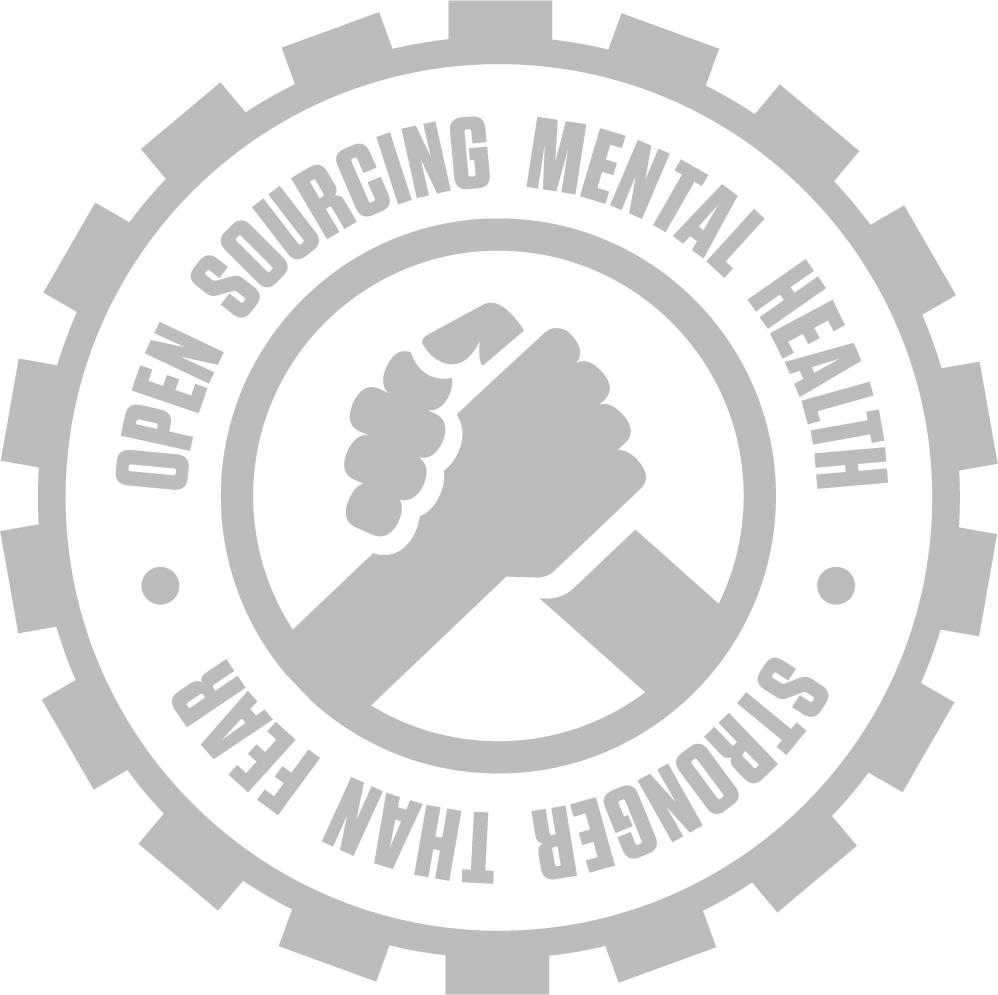OSMI Stories
A Brain That Wants To Continually Sabotage You
As a person that suffers from dysthymia (low-grade depression and anxiety) with periods of intense depression I so sympathize with Ed. Dude, you are a champion above champions for opening up and sharing this. Fortunately I have found ways to handle it with out medication, meditation and mindfulness, but I do fall off the wagon once in a while. It really sucks to have a brain that wants to continually sabotage you and keeps you from reaching your potential. Just know there are millions, and I do mean millions of people, that understand what you go through.
Accepting Vulnerability
I used to think mental illness was something most people could just overcome through effort and atitude—mostly due to some bad experiences with people who basically blamed all their problems on some undiagnosed "problems." Then I started living with some guys, one of which really struggled with a ton of different issues (bi-polar being the least of which).
These are real issues and I really learned to understand not to judge and to be very careful with other's feelings and expectations. Above all, it's nice to see people accepting vulnerability—I think we're all insecure, so it's important that we're all patient with each other. It's also nice to know that people struggle with anxiety issues—I can be like that at times as well... I really like to see things done once before I dive in myself.
Anxiety and Isolation
I could identify with so many things you talked about. I deal with the same kind of issues - especially anxiety. I've never really talked with anyone about it (besides my wife) but I may try to find a doctor or counselor to talk to. I work remotely too and can relate to a lot of the things you mentioned.
I always want to go out and meet others in the development field, but I can't get myself to go to any of the meetups or conferences. I'd gone to one day conference but was too nervous to talk with any of the other attendees, so even though I really enjoyed the presentations, I left feeling like an idiot for not introducing myself to anyone.
Being Visible
OSMH has been the most helpful simply by being out there. Being visible. Whether I’m actively participating or not, just knowing I’m not alone in the struggle is a tremendous benefit. While I’ve been aware of my mental illness for a long time—15 years?—it’s taken most of that time to gain an understanding of how it impacts my work, both positively and negatively.
As an introvert under the hood, I may not actively engage. But I take comfort knowing I could actively engage, because OSMH will have my back. Awareness of a support network is huge. The fact that OSMH is spreading the word and increasing awareness of mental illness and its potential impact among the neurotypicals working in other parts of an organization is just icing on the cake. Knowing I can call on you when I need you is the most important thing.
Family and Understanding
Both my wife and I suffer from anxiety and depression. The issue we are running into is with understanding among the family even though many of them also have depression. After listening to your talks, I feel very strongly that they need to listen to them, and that if they do, they will be able to much better understand. Your explanations are amazing and hit home amazingly well. You speak in a way that most people will be able to understand.
Giving Voice To The Struggle
While I haven't had to deal with mental illness with myself, my wife has had several struggles with severe depression & anxiety. I heard your experience on while my wife & I were starting to see a therapist. It was extremely helpful in helping me to see some of the things she was struggling with from your point of view, things she had a hard time voicing & explaining.
By far the biggest challenge we face, on a daily basis, is the absolute lack of awareness most people have when it comes to dealing with mental illness. Even with the best of intentions, most people have no idea how to really help and unintentionally alienate the person they are trying to help. I honestly believe a lack of understanding is the largest obstacle that people on either side of the situation.
Your openly speaking about your personal struggles directly addresses the lack of awareness. It is bringing to light something that people just don't talk about, which causes people to think it is a rare thing that only they face.
Helping Others
The more we can get these stories out there, the better chance we have of influencing general public perception, and most importantly, helping others who suffer to try to get help.
Removing The Taboo From Mental Illness
Being the spouse of someone with mental health issues can be... difficult. You often recognize that your significant other is struggling before they do. You can sympathize, you can try to empathize, but you can't truly understand what they're going through unless you've been there yourself. Ed and OSMH gave something to my husband that I couldn't. They've created a support system of people who get it because they've been there too. He finally understands that he isn't alone, he isn't a freak, or wrong, or broken. OSMH is removing the taboo from mental illness and making it okay and safe for the people who are struggling with these problems to communicate with the people in their lives about what's going on.
Social Anxiety
Thanks for so accurately describing the anxiety I have that I couldn't myself. My ex-spouse used to give me a ton of shit because the first 3 days of a vacation I'm still trying to "get used" to the hotel.
In the gym, I'm terrified of using a new piece of equipment, because I know I won't know how it works. I don't attend any sort of organized social dinners or parties, because I see them as a mountain of rules I don't know that I'll be viewed as an asshole for violating.
That's sort of how I feel about every public situation; like everyone has some rule or procedure book I didn't get a copy of.
The Stigma
Thank you for your talks about mental illness. Like you, I deal with Generalized Anxiety Disorder and take the same meds you do. I first noticed this condition as a teenager, and I'm almost 30 now. Every single sentence you said resonated with me. I'm still incredibly embarrassed about the condition and most likely will not tweet about this topic out of pure shame, unfortunately. The stigma is definitely deep.

